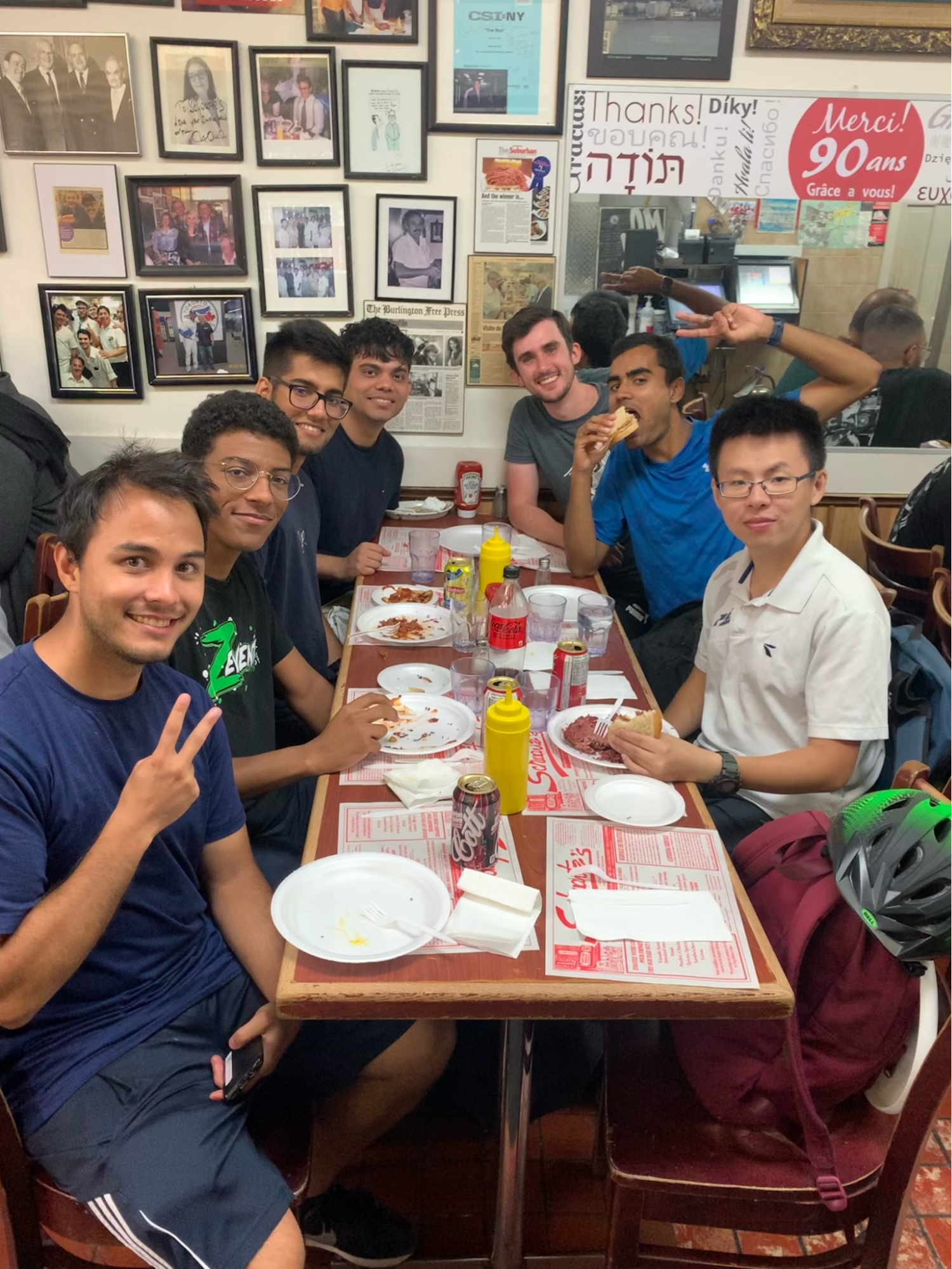

Body of IITR
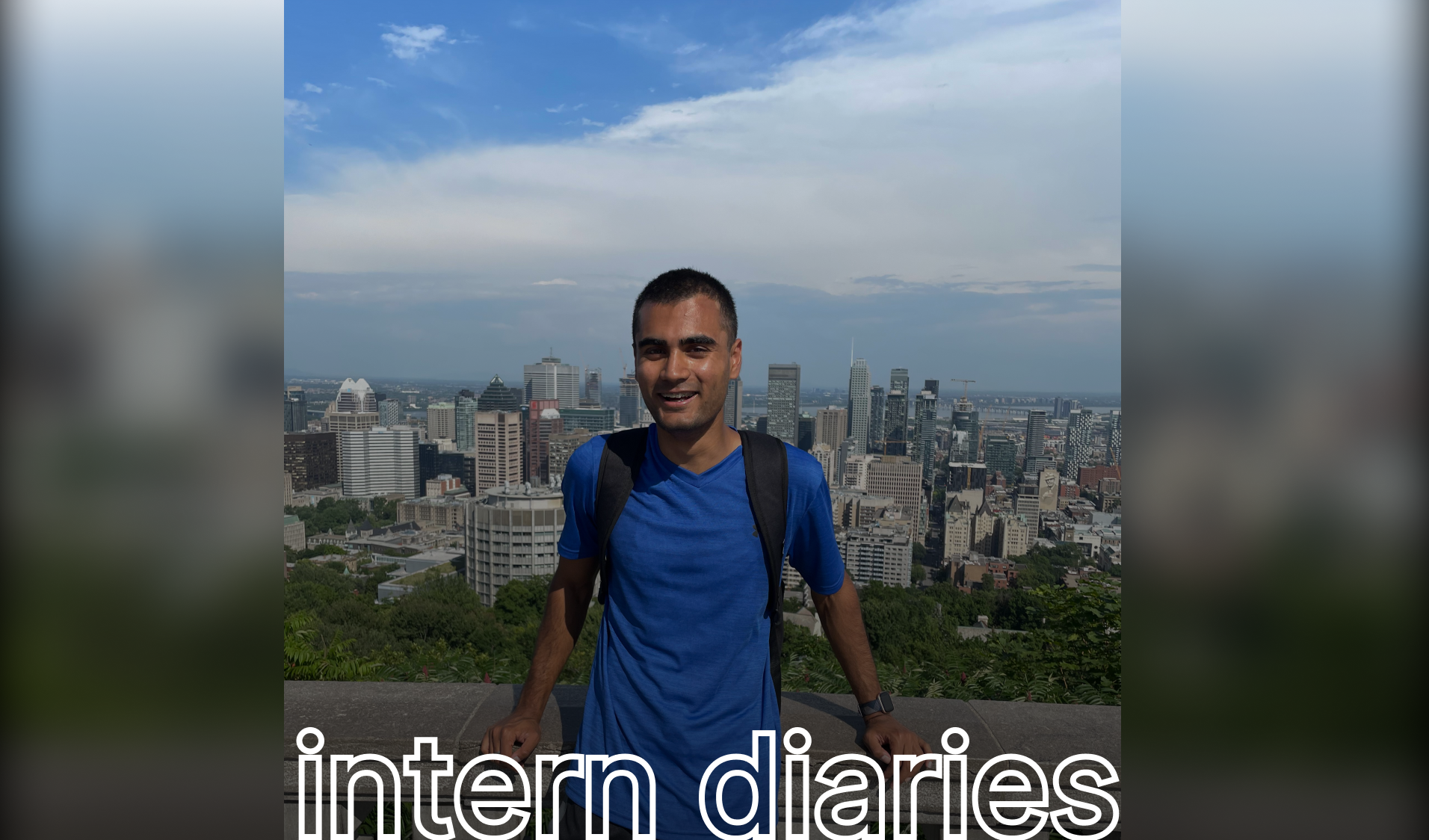
In my third semester, I got interested in the application of data science in drawing inferences from physical activity data. I cold-mailed a few profs whose work had piqued my interest and got a research internship for the summer of 2021. This internship gave me a good insight into the fundamentals of research. I enjoyed the work and almost always learned something new in the weekly meetings with my supervisor. After this internship, I wanted to work on another research project to learn something new and apply what I’d learned.
As the intern season drew close, I faced a dilemma: whether I should try for on-campus internships or focus on research internships. Peer pressure is not something that has ever intimidated me, but during the intern season, I could feel it as I saw my friends land internships at some fantastic firms.
I spent a few days contemplating whether to try for on-campus internships and decided against it and instead chose to focus solely on research programs as I wanted to explore the research domain further. Before following through with this gambit, I consulted some of my seniors, who gave me good advice, strengthening my resolve to pursue a research internship.

MITACS Globalink is a Research Internship Program funded by MITACS Canada which invites undergraduate students from across the world to pursue a research internship for 12 weeks at a Canadian university. The amount of funding one receives is quite substantial (~9000 CAD during my time). Another perk of this program is that MITACS Globalink interns are eligible to receive a one-time award of 15,000 CAD if they return to Canada for full master’s or Ph.D. programs or Postdoctoral fellowships.
The application process and eligibility criteria can change over time. Thus, I believe it’s best to visit the Globalink website for the latest details. The application process is pretty straightforward.
MITACS was the only research program I applied to. I didn’t have any interviews for my selection, but I had many friends who had multiple interviews. I got my selection mail in the second week of December 2021.
Montréal is the largest city in Canada’s Québec province. French is the city’s official language. Fitting in a new town is always challenging, but Montréal had a certain je ne sais quoi that proved quite appealing, and I have loved it since the day I landed there. What I liked the most about the city was that despite living downtown, nature was just a stone’s throw away. Mt. Royal (which lends Montréal its name) was less than 2km from my home, and I often went running there.
Montréal is lovely in summer with its numerous musical, cultural, firework, and food festivals. It has some scenic biking trails as well - the Lachine canal, for instance, has an excellent route that showcases some of Montréal’s dynamic landscape: parks, skyscrapers, and historic buildings.
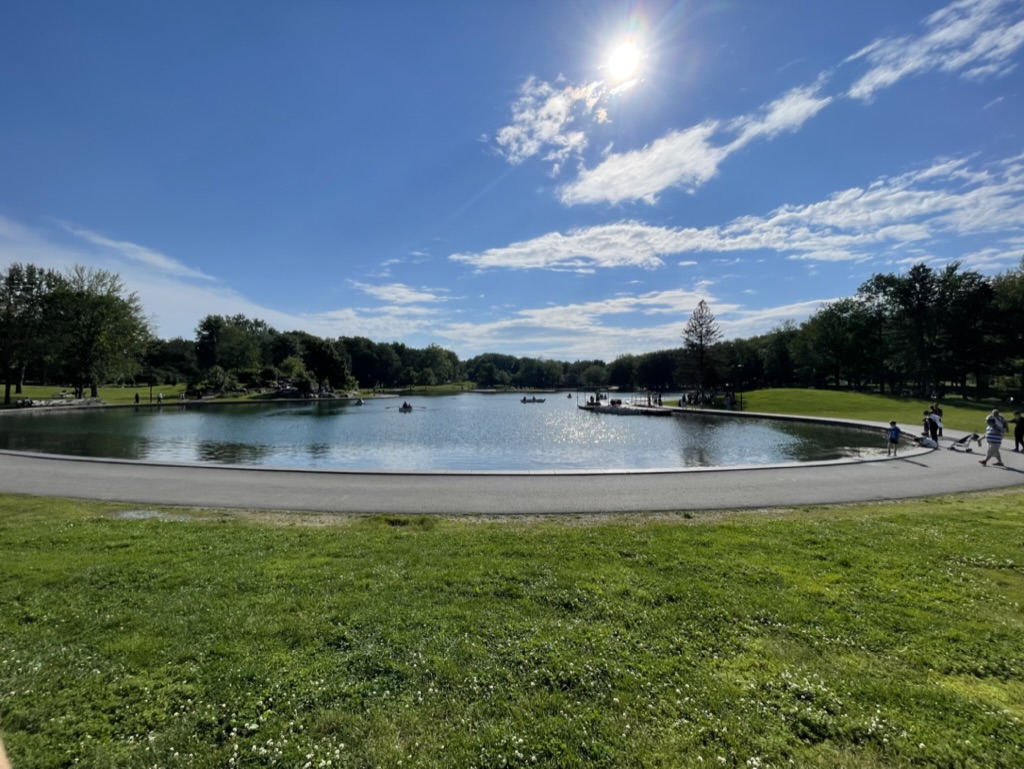
McGill University’s main campus is in a unique location between downtown Montreal and Mount Royal Park. It has some historic buildings. On the days I didn’t go to the lab, I preferred working from McGill Library. When the skies were clear, I worked from the green spaces on the campus, where squirrels often used to join me for lunch.
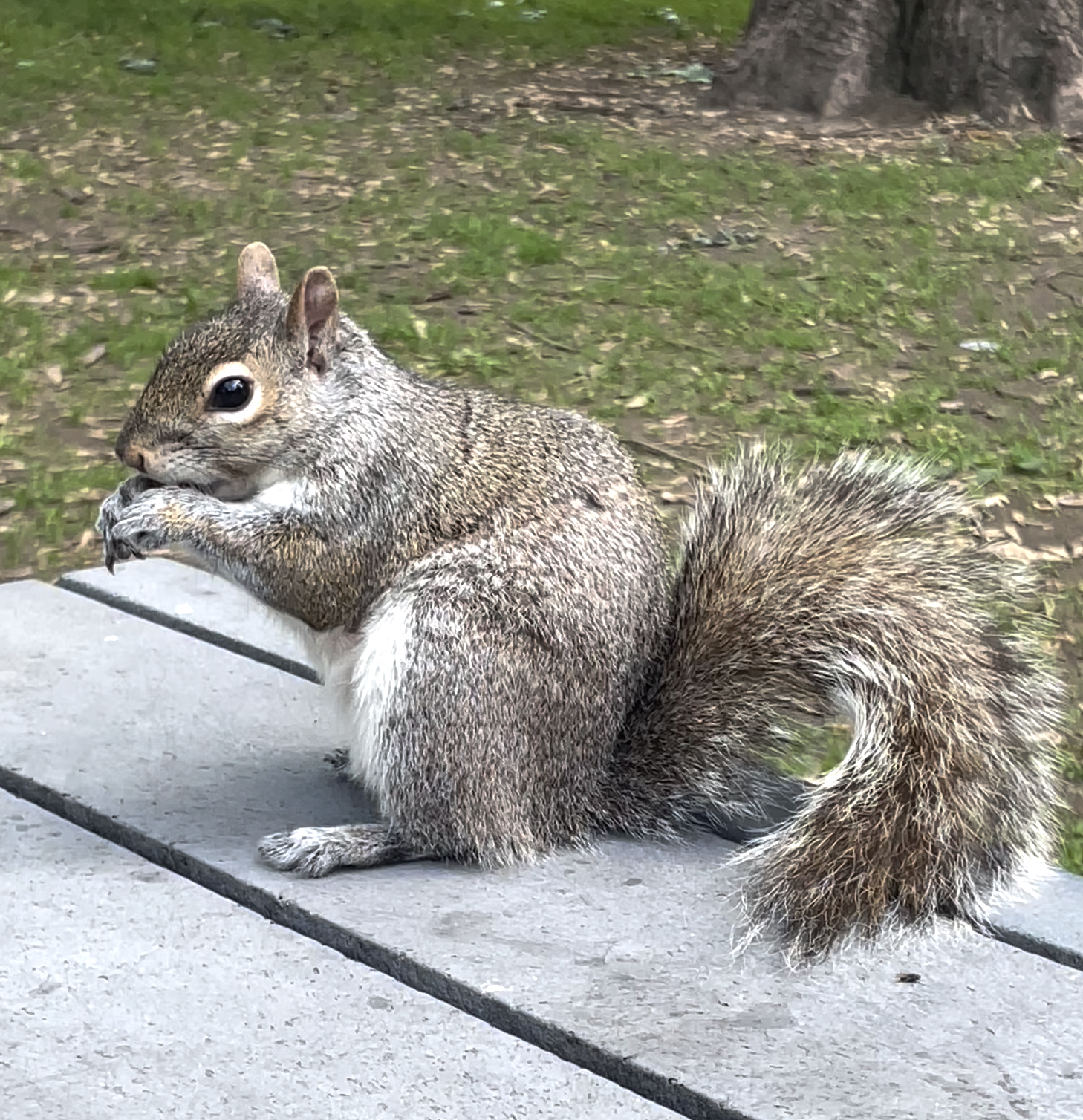
As a part of my project, I needed to study the role of life stress in the risk of Alcohol Use Disorder (AUD). I had access to a dataset of residents of Montréal, which I used for my study. I employed statistical tools like latent profile analysis, multiple regressions, hierarchical regressions, etc., to meet the two objectives.
I had weekly lab meetings with my supervisor where I’d report my progress and obtain feedback which helped optimize the work for the following week. I worked closely with my supervising professor and postdoc and learned a lot from them. For instance, my professor taught me how to evaluate results from the perspective of clinical interpretability, which is often quite different from how one considers results from a purely statistical standpoint.
I joined McGill Outdoors Club and attended its weekly meetings every Wednesday, where we played ultimate frisbee and discussed future trips. I met some of my best friends at these meetings.
As Montréal is a multicultural city, I had the opportunity to interact with people from all across the world, quite literally. France, China, Brazil, Germany, Korea, Mexico, Iran, Hong Kong, Egypt, Spain, Japan, Colombia, etc.
This was the first time I had this opportunity, and interacting with and making friends with people from across the world was a pretty exciting and fun experience.
I went on trips almost every weekend. I spent one weekend in Ontario, where I got to witness the beauty that’s Niagara and Toronto with its spectacular skyline. Thanks to this trip, I made some terrific friends with whom I went on many other trips. Québec has quite a few National parks, and I visited some of them. I also went biking to some quaint towns close to Montréal.
I spent my last Sunday at the Osheaga Music Festival, where I watched goosebumps-inducing live performances by Glass Animals and Dua Lipa.
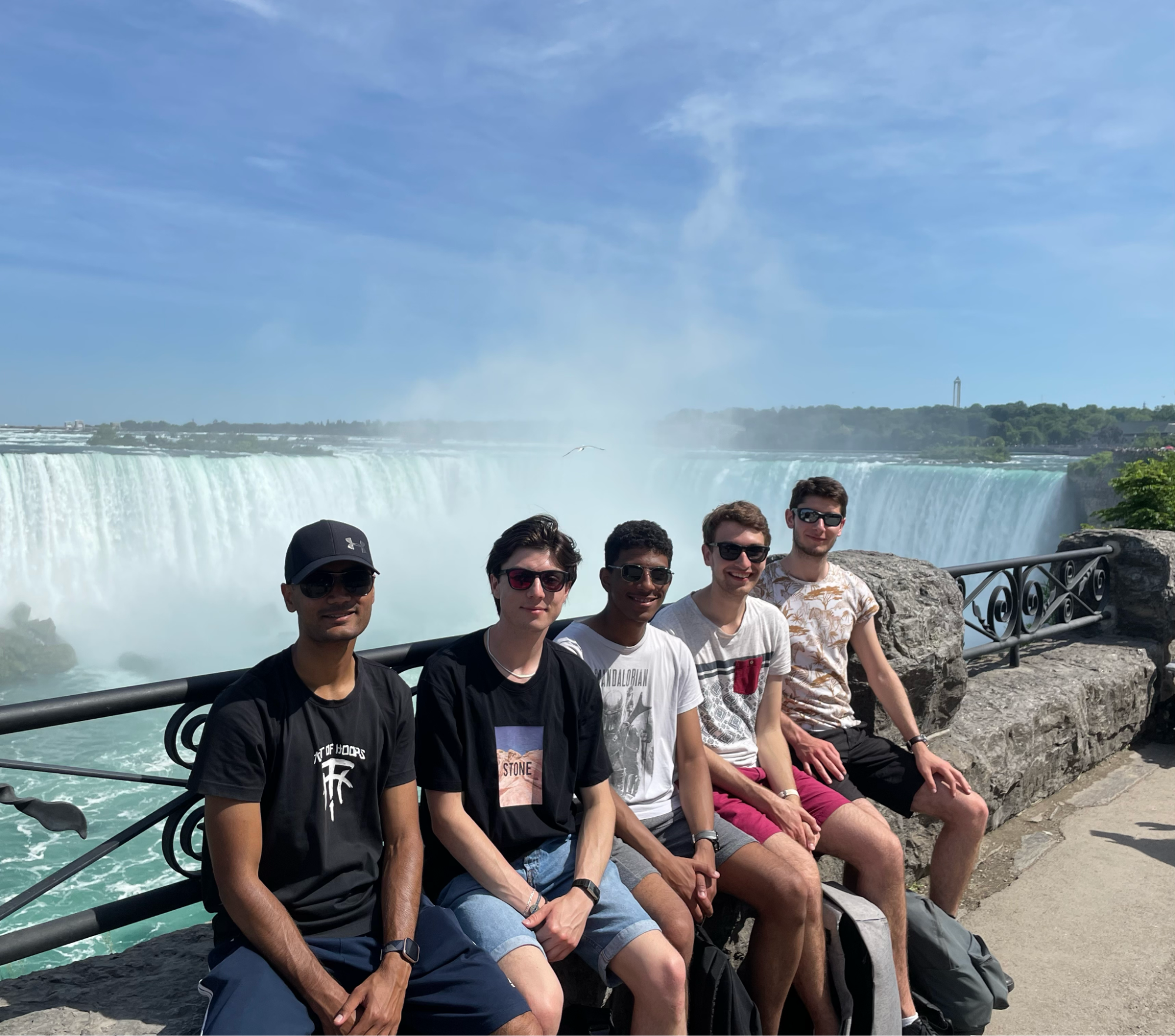
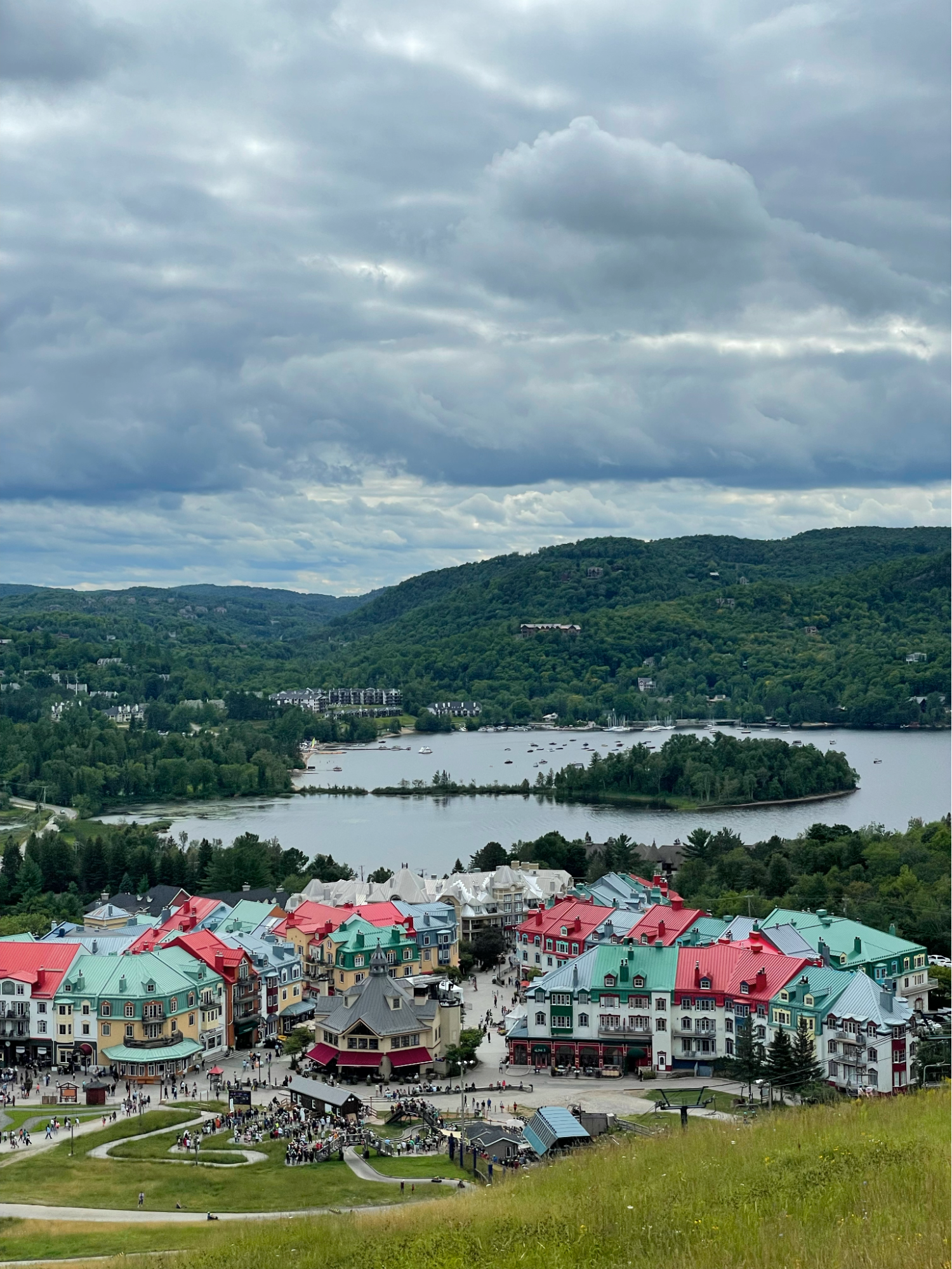
This was the first time that I’d traveled to a foreign land. I had to take care of almost everything: buy my groceries, cook my food, clean my apartment, and take out the garbage. I believe this experience of living independently will be helpful in the future irrespective of choosing a life in a corporate setting or a life in academia.
All in all, it was a life-changing experience for me personally. I gained more insight into what goes into research than I ever thought possible in a 12-week-long internship.
Meeting people from across the world and making new friends had to be the best part of this internship.
For anyone aspiring for a research internship, if you’re eligible for MITACS, do consider applying for it.
